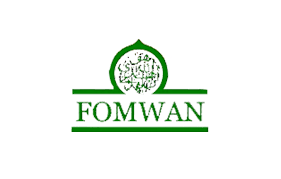The Federation of Muslim Women’s Association in Nigeria (FOMWAN) has urged women survivors of rape and other physical violence to speak out to reduce the impunity enjoyed by some perpetrators.
The National Leader (Amira) of the group, Dr Halima Jibril, made the call when members of the association, the Women Wing of Christian Association of Nigeria (WOWICAN), the Nigeria Girls Guide and the UNWomen paid a courtesy visit to the Sa’peyi of Garki in the FCT.
Jibril said the visit was part of the Risk Communication and Community Engagement Project (RCCE) supported by UNWomen and the Federal Ministry of Women Affairs being implemented by FOMWAN, WOWICAN and Nigeria Girls Guide in 20 local government areas across 10 states of the federation.
She explained that 10,000 women would be empowered through a non-conditional cash transfer in response to the ravages of COVID-19, which had led to deaths, unemployment and increase in violence against women and girls.
The FOMWAN leader said “there is a culture of silence, especially among women, particularly in the North. Women are afraid to say their daughters are raped because of the stigma attached to it. There is also the fear that such a girl might not get a good man to marry her. When you look at the issue of rape, you cannot quantify the level of damage done to the survivor and her family; the psychological trauma, the medical implication, the effect of the abuse and how it robs the survivor of her dignity as a woman. Survivors must speak out to get redress and get the culprit handed over for legal procedure rather than to keep quiet, because keeping quiet may encourage the perpetrator to do more, believing that he can always go unpunished”.
She, therefore, appealed to community leaders to promote adherence to COVID-19 guidelines, promote education, support women empowerment, while assuring that the strategies were to eliminate all forms of Gender Based Violence (GBV), support survivors and ensure prosecution of perpetrators according to the law.
She also called on the traditional rulers to explore structures and culture that protect women and girls against GBV, as well as re-examine practices that do not promote the wellbeing and dignity of women.
Ms Comfort Lamptey, the UNWomen Country Representative to Nigeria and the Economic Community of West African States (ECOWAS), said that the project would improve the economic wellbeing of women, particularly the vulnerable ones.
Lamptey, who was represented by the UNWomen Programme Officer, Mrs Patience Ekechukwu, reiterated the commitment of the UN system toward supporting governments to eliminate violence against women and girls.
The Sa’peyi of Garki, Alhaji Usman Ngakupi, commended the efforts of government and development partners toward supporting and alleviating poverty through implementation of programmes that would improve the status of the people.
The traditional ruler appealed to the people to instill morals in their children and emphasised his council’s commitment toward curbing the menace of GBV in the community, while ensuring that perpetrators would be dealt with according to the law.
The delegates had earlier visited the Gomo of Kuje and some association leaders to canvas for support in the execution of the war against GBV project.

